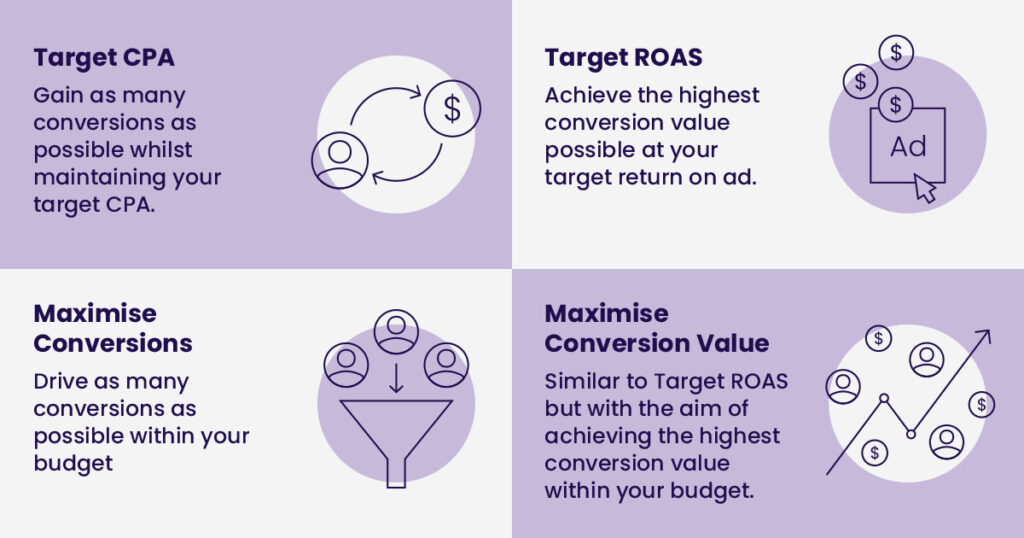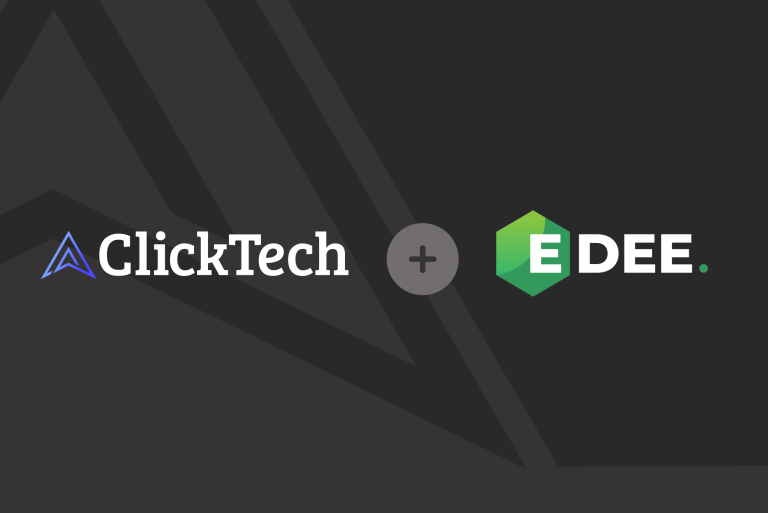Historically, it has been recommended that advertisers should use exact and phrase match more to generate clicks, as on average, they tend to be more relevant and will be cheaper to target overall.
However, with competition for advertising space increasing and finding potential customers becoming more and more difficult, there needs to be a way to cast the net wider whilst maintaining a clear goal. This is where smart bidding can help.
So, what is Smart Bidding?
Smart Bidding is Google’s suite of conversion-based bid strategies. Smart Bidding uses ‘auction-time bidding’, a machine learning function that enables the engine to optimize your bids for optimal conversion performance. Smart Bidding takes broader contextual signals into account when choosing a bid, including the device, operating system, language, location, and time of day; as you can imagine it would be impossible for a human to consider all of these elements in-the-moment.
There are several Smart Bidding strategies to choose from depending on the nature of your business and your goals:
- Target CPA: Provide a target cost-per-acquisition (the amount you’re willing to pay to achieve a conversion) and this bid strategy will aim to increase conversions within this cost.
- Target ROAS: This strategy aims to achieve the highest return-on-ad-spend (similar to ROI). In order to use this bid strategy you’ll need to assign a value to your conversions.
- Maximise Conversions: This strategy will use your budget instead of a target CPA to achieve as many conversions as possible within your spending threshold.
- Maximise Conversion Value: Similar to Target ROAS but with the aim of achieving the highest conversion value within your budget.

Why should you pair Broad Match With Smart Bidding?
The use of Smart Bidding is crucial alongside Broad Match keywords to temper the wide-ranging nature of the search queries. The ‘auction-time bidding’ capability allows the engine to identify the searches with the most potential, and those that are less likely to be relevant or fruitful. This logic is employed when the auction takes place so can be used to set an appropriate bid, or even prevent your ad from showing in that auction if the outcome is unlikely to add towards your objectives.
Here are three tips to make Smart Bidding work for you:
- Smart Bidding refers to other keywords within the same ad group for further insights. Ensure your ad groups are well-organized to help the bidding system to intake relevant data.
- Regularly review your Search Terms report to see which keywords you are appearing for, and to add any negative terms to your campaign or ad group that are irrelevant or too expensive.
- Monitor the conversion quality from the campaign (leads, average order value, etc…) so you can adapt your smart bidding goals (reduce CPA target, increase ROAS target) if it is under-performing
In summary, by targeting more people, you are allowing the network’s smart bidding strategies to gather more data to identify which keywords will work best to generate conversions.




